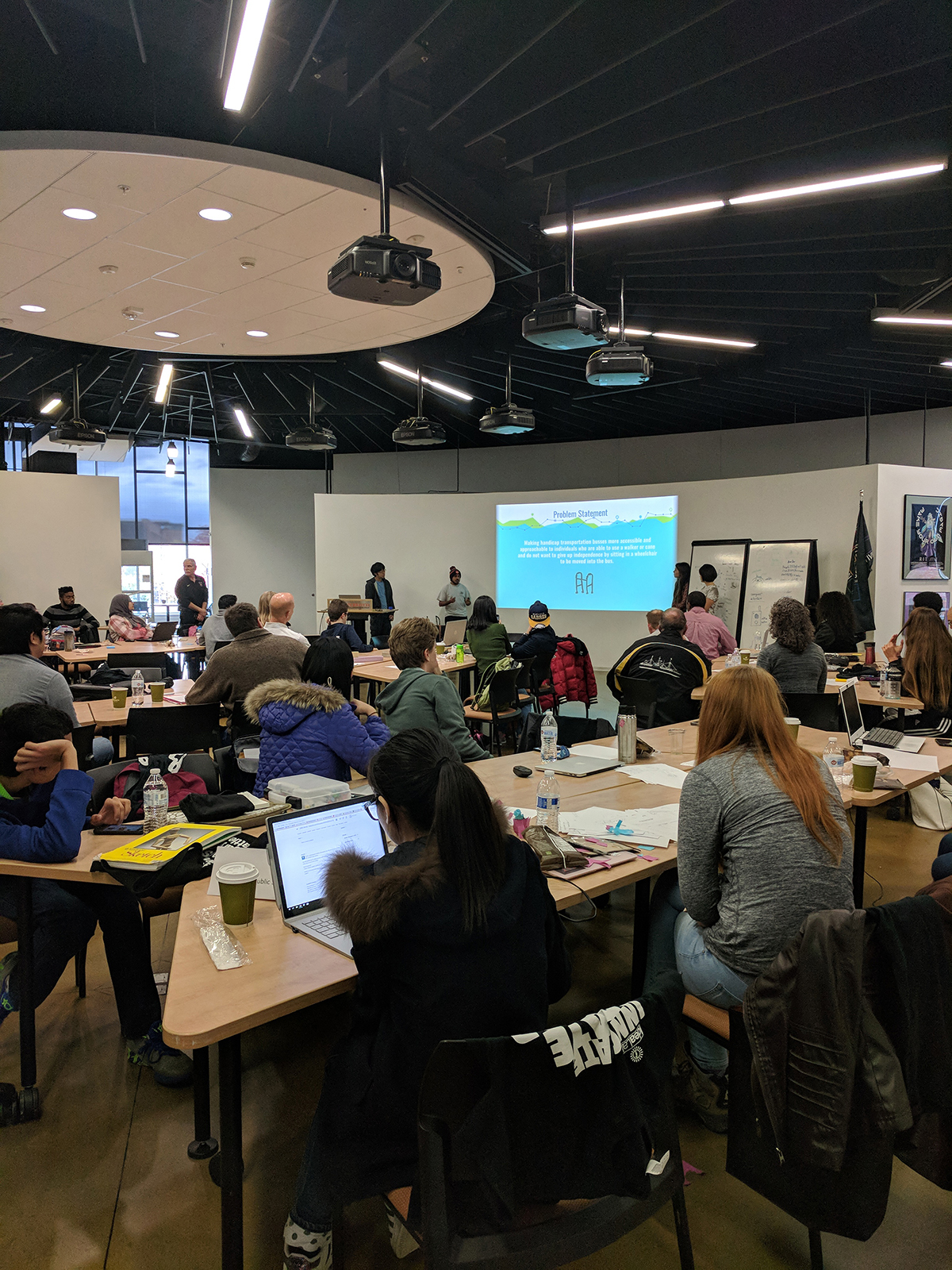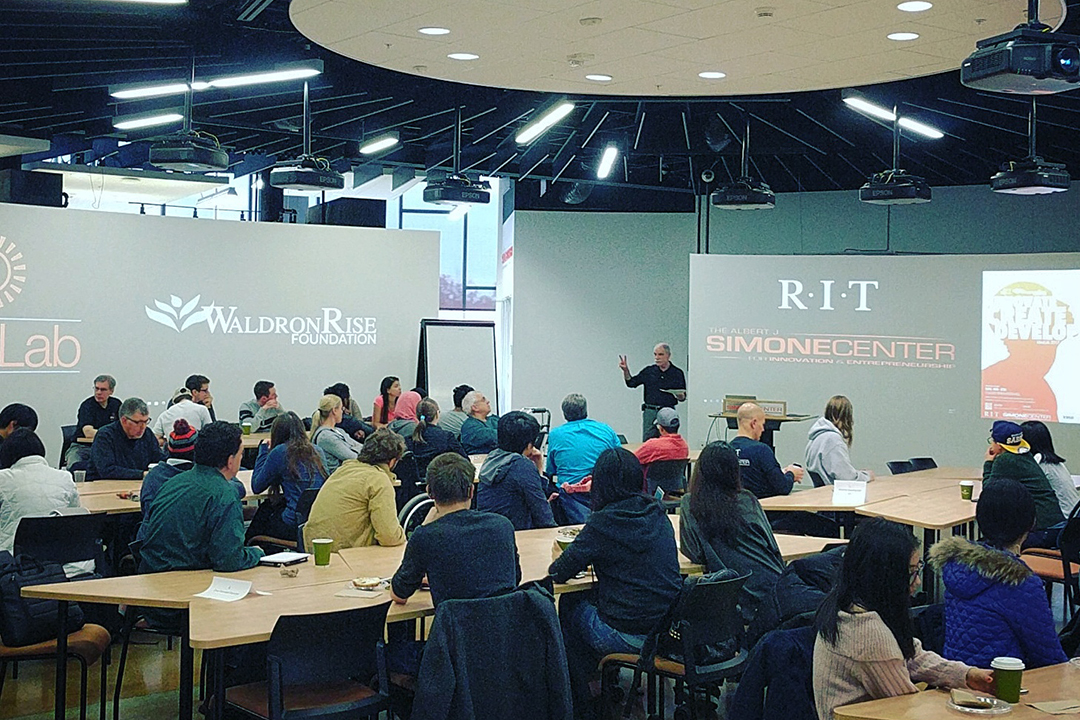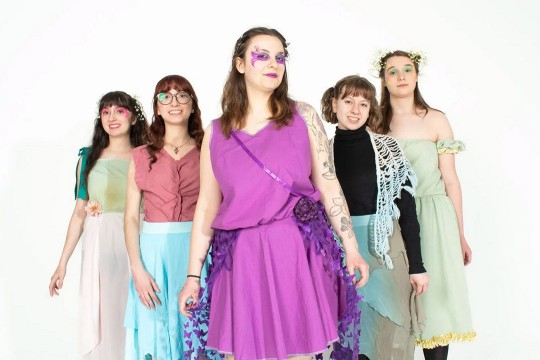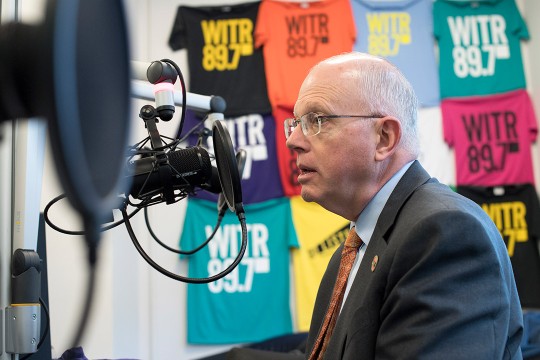Multidisciplinary teams apply problem-solving skills during IdeaLab event
RIT Access Technology IdeaLab lead Dan Harel instructs during the event that ran Nov. 4-5 at RIT.
Rochester Institute of Technology students and faculty from various disciplines put their creative problem-solving skills to good use earlier this month. Working collaboratively, they examined challenges faced by client organizations and then presented conceptual solutions to them during a two-day event.
Along with faculty coaches, 33 students representing 14 RIT programs — including heavy involvement from the College of Art and Design' industrial design program — participated in this fall’s RIT Access Technology IdeaLab. It’s a bi-annual, multidisciplinary program that allows RIT students and faculty to develop potential design solutions to organizations' unique issues across a weekend.
This fall’s IdeaLab was sponsored by the Waldron Rise Foundation. Dan Harel, an RIT industrial design adjunct professor, is the IdeaLab lead.
Student teams produced access technology ideas relating to the problems of five clients, which were:
• Al Sigl Community of Agencies
• CP Rochester
• Medical Motor Service
• SportsNet
• University of Rwanda, School of Inclusive and Special Needs
An advisor from each organization outlined their encountered challenges. The representatives then stayed with their respective teams for the duration of the event to answer students’ questions and watch the final presentations.
End-user involvement also assisted the RIT teams in their research. Parents and their children with physical limitations communicated their pertinent challenges, making them more approachable to the teams, Harel said.

The below list, provided by Harel, consists of problem areas that were addressed in this IdeaLab iteration.
• Children with disabilities in Rwanda can’t easily reach school due to the rough terrains they must pass daily. Design a robust, low-cost, collapsible, repairable wheelchair solution that can withstand these conditions and provide the children a better chance to attend school.
• Individuals with hemidystonia who are being treated by a neurologist are not often able to walk properly. Design an orthotic device to increase their ability to walk more effectively and efficiently.
• Individuals who can’t stand on their own can use new assistive golf carts that allow them to be placed in a vertical position. However, their posture is not adequate for playing the game. Design a solution that affords these individuals optimal posture while using conventional golf clubs.
• Cyclists riding with individuals with unpredictable reaction times and braking abilities have no way of controlling the braking function of their bicycle. Design a remote-controlled braking system for individuals with these conditions.
• Individuals who rely on a walker have difficulty entering a van with a wheelchair lift due to instability while being lifted. Design a safe and stable solution for lifting them into their transport vehicle.
• Individuals with only one capable arm can’t easily operate a manual stander designed to be operated with two arms. Design a one-handed stander for individuals with one arm and capable of providing the force necessary to operate the system.
• Children often use public slides unsafely when there is no adult supervision. Design a solution for these children to safely go down a slide, whether they are in a sitting position facing forward or on their stomach facing forward.
Participating students from industrial design were Sooa Chung, Andrea Gonzalez Esteche, Dan Grinthal, Qiaochu Liu, Yuke Liu, Yinan Luan, James Sheeler, Abby Van Camp, Tiree Walker, Minyue Wang, Siqi Xu and Zoey Zhang.
The other students are from the following majors: bioinformatics, biomedical sciences, biotechnology and molecular bioscience, computer engineering technology, computing security, electrical engineering technology, human-centered computing, human-computer interaction, industrial engineering, international business, management, manufacturing engineering technology and mechanical engineering.













